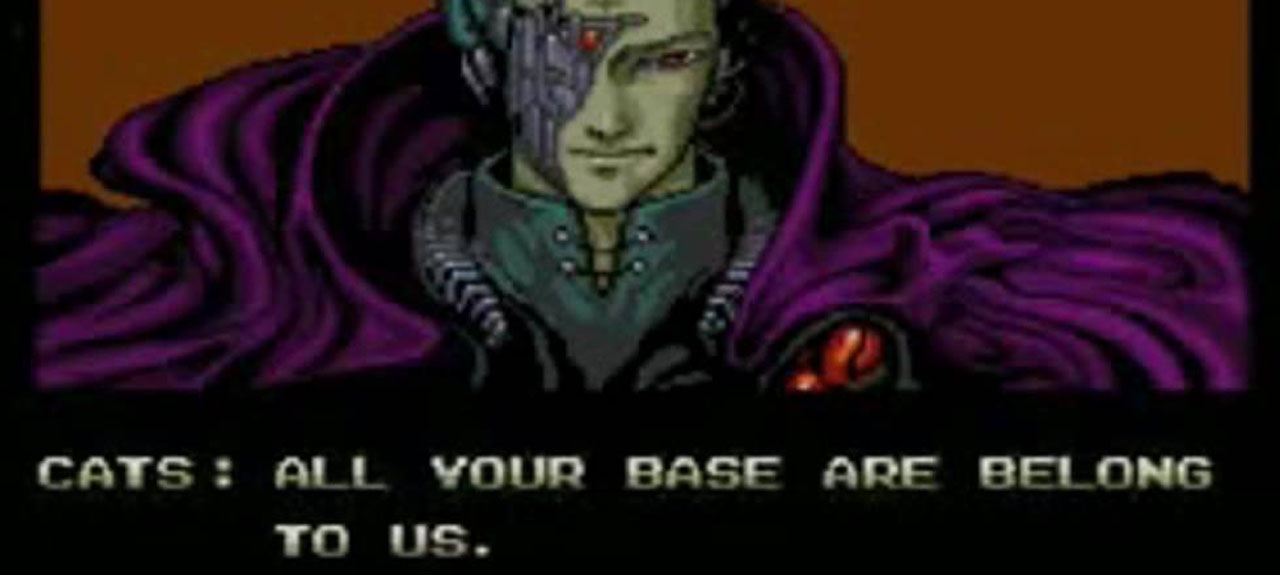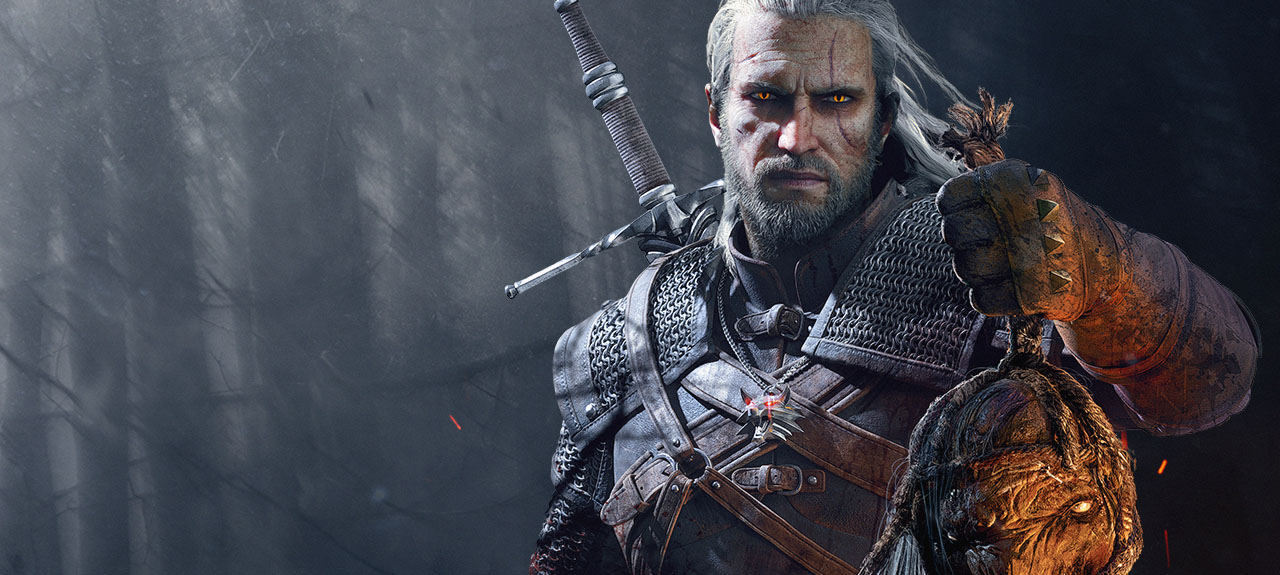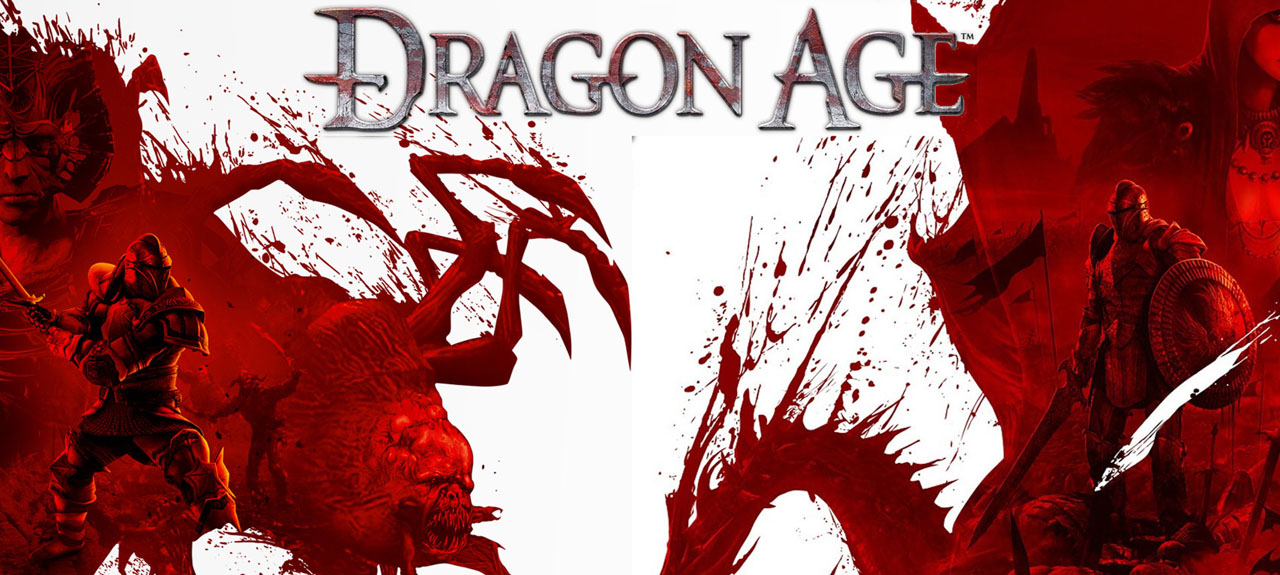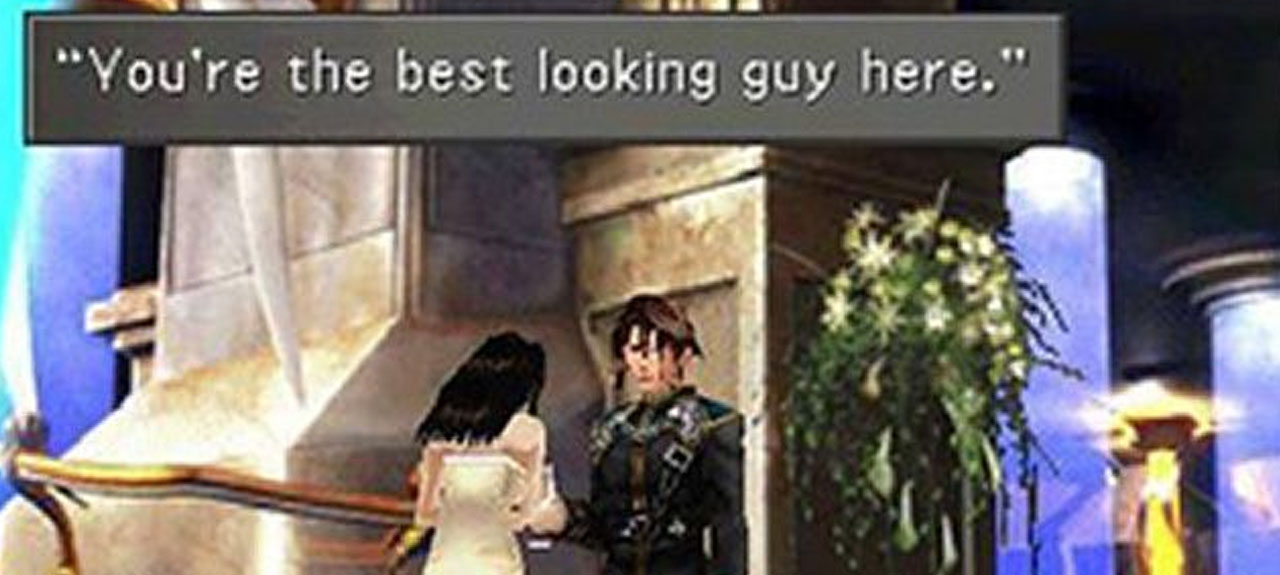Autism to Artistic Integrity: Do Video Games Need Good Plotting?

Unless you exclusively watch Syfy channel B-movies like Sharknado 4: The Fourth Awakens, then you understand the importance of good dialogue. If it sounds mechanical (or too organic, with too many ums and uhs) the audience will disconnect from the story. The same goes for plotting: A novel might have the greatest dialogue known to humankind, but none of that matters when there is no plot and the story just floats aimlessly like a seagull bobbing in the ocean. These two elements of storytelling have a symbiotic relationship. Alone, they cannot sustain a story. They must be used in conjunction with each other in order to work.
How do video games fit into this? After all, video games have a history of success despite sparse plots and paper-thin characters like Mario, who would jump from platform to platform, castle after castle in search of his beloved princess. Gran Turismo saw players racing different cars over and over, and we all remember the infamous dialogue “All you base are belong to us,” from the 1992 Sega Mega Drive port of Zero Wing.
But the video game market has changed dramatically since then. We now see fantasy epics set in distant lands with enough story content for fifteen or more movies, and rich characters that have to deal with real moral dilemmas. So, is there a need for good dialogue and plotting in video games? Or is it enough to simply have an enjoyable game with fun mechanics and great graphics?
Raising the Bar for Video Games

Traditionally, video games have managed to slip under the narrative radar, succeeding despite some terrible plotting and dialogue. Original era video games such as Pong didn’t have plot or dialogue at all; so why is it important that the medium has these elements now? And why has there been a push to include richer storytelling in gaming?
There are many contributing factors, but the biggest of them is demographics. Video games gained traction during the 80s and 90s and now these gamers are all grown up and looking for more mature content and storytelling. In 2016, the Entertainment Software Association published that the average gamer was 35 years old. These children who grew up with Mario and Sonic are now progressing to darker, more complex stories like Grand Theft Auto V or The Witcher III: The Wild Hunt. The customer base has grown up and so has the market.
Not everybody got the memo.
Back in 2014, Australian Kmart and Target stores pulled the release of Grand Theft Auto V from their shelves because of a petition complaining it depicted violence against women. The three women who started the petition stated the following about the game.
“It’s a game that encourages players to murder women for entertainment. The incentive is to commit sexual violence against women, then abuse or kill them to proceed or get ‘health’ points,”
Whatever game these people were playing, it wasn’t GTA V. Glossing over the glaring problem that by omission this campaign has said violence against men is acceptable, despite men being the overwhelming majority victims of real life violent crimes, their statements are completely false. In fact, the only instance of sexual assault against women in GTA V is a random event where you pull over to find a woman who is about to be raped. You kill the rapists and drive her home, which is the exact opposite of the claims detailed in the petition. While nobody is going to argue that the content is not disturbing, it at no point glorifies the actions of these men. It is seen for the heinous act that it is, and implores you to stop it.
Deceptions and misinformation aside, this petition sparks an interesting question: Why did they pick GTA V? Crime shows like Sons of Anarchy and The Sopranos have featured sexual assault storylines in a similar way, and yet these stories are not given anywhere near the level of criticism that GTA V did.
But GTA V is a video game.
It all stems from a perception that video games are a lesser form of entertainment meant only for children and forty-year-old men living in their parents’ basement. The overwhelming majority of people who signed the petition were concerned parents, worried their children would get a hold of the game and become corrupted by its adult content. This is a valid concern. Children should not be playing games with such dark themes, but this game was never intended for children.
Video games need to break this stigma and continue to strive for the same quality writing as mature themed film and television. We need to draw more attention to this market and distinguish the difference between titles like Mario and Mass Effect. We must accept this medium as the art form that it is. Many people expect terrible dialogue and cheap thrills storytelling, but game designers set a very high benchmark for their narratives. The public perception needs to change. We as a society need to appreciate that video games have become more than bright sprites and chirpy digital music.
Truly Innovative Storytelling

We all remember the choose your own adventure books from our childhood where you guide the main character through the story, giving them choices that would impact the plot and the character’s safety. The stories didn’t always end well. It wasn’t always happy, and there was something fun and exciting about that. The problem with these books was that it was often too obvious to figure out which option you needed to survive, and the choices kept the character relatively undeveloped; otherwise, the writer would need to plot several emotional arcs for each option, also factoring in the previous decisions. Before he/she knew it, the writer would be looking at a 1,000-page doorstop with a ton of complicated rules that suck all the fun from the original concept.
Video games have been able to use this choose your own adventure style much more effectively; all those complicated rules and algorithms happen behind the scenes. BioWare games like Mass Effect and Dragon Age have genuine consequences. Certain actions will appal some characters and they may not wish to embark on an adventure with you. During my own playthrough of the original Dragon Age, the adventuring party was ambushed by Zevran Arainai: an elven assassin who was raised in a brothel when his mother died shortly after childbirth. The party had the option to kill him, but I, as the leader, chose to spare his life and offer him a role in our group. Zevran explored with the party for some time, and after listening to his snappy dialogue and tragic backstory, a bond was formed; both with the characters and myself.
Everything was coming up Milhouse until the party reached the Denerim Alienage, where he betrayed us and we were forced to kill him. The games’ choices had consequences. The kind act of adding Zevran to the party was not rewarded. This was the result of a choice system. Things were said and choices were made that Zevran was not particularly happy with and because of this, the party didn’t have his loyalty. These choices plotted a course for Zevran that did not end well. It also impacted the plot for the other characters. Some were not happy about the decision to bring him into our party, and some admired the compassion. This multi-faceted plotting system added a new dimension to the story. Choices that were being made in real-time had impactful consequences later on.
Dragon Age has all the grit and fleshed out characters of George R. R. Martin’s A Song of Ice and Fire, and the dialogue is just as believable. This is not a comparison about which story is better. They both employ storytelling methods that offer different experiences. While books like A Game of Thrones might offer insight to interesting characters, well-written games like Dragon Age give you a chance to inhabit such a layered character and make choices that have serious consequences for themselves, their party and the world at large.
Structure and Social Interaction for Kids with Intellectual Disabilities
Just as different mediums have better advantages for certain styles of storytelling, they can also better cater to a particular audience.
Video games have been given the reputation of being damaging to children and stunting their emotional development; but there has been research in recent years that suggests video games can actually help children, particularly those with intellectual learning disabilities. This is not to say that a child with autism is going to show great social improvement after spending a weekend playing Leisure Suit Larry, but there are definite advantages to using the right games.
Autistic children need structure. It makes them feel safe and secure in a world where the curveballs of life affect them more than most people. A heavily plotted series like Final Fantasy or Tomb Raider can provide some of those constraints and boundaries that an autistic child craves. Characters have clear motivations and the plot progresses in a sequential order. This is no different to film or television; so why not just have the child watch those, instead? The difference for a child with autism is the level of immersion. They become the character. This is able to teach the child about compassion and empathy for others (a trait autistic children can sometimes struggle with) in a direct and immediate way, with an intensity they cannot get from other mediums. When Lara Croft dies at the hands of your fumbling controller, there is a much heavier investment than watching it in a film. Many children of the 90s’ first encounters with character empathy were during the now famous scene from Final Fantasy VII where Aerith was disemboweled by Sephiroth. So many people have discussed the intense reaction they have to this scene; a reaction wrapped in a protective layer to allow controlled emotional expression without exposing the vulnerability you would with real world tragedies.
As much as the children are immersed in the world, there is also a level of safety and security in playing games. Minecraft has proven to be a popular choice among autistic children, and while the game is an open world adventure with no plotting or structure outside of Story Mode, it offers something else: genuine conversations with real people from around the world; arguably the most authentic dialogue. When autistic children log on to an online game of Minecraft they are presented with an opportunity to start a genuine dialogue with a real human being, but still within the safe confines of their fantasy world of pixelated bricks.
We should never underestimate the power of the right video game in the hands of a child with learning disabilities. Sure, it might not be the most conventional way to learn social skills, but autistic people rarely do things in the most conventional way. These children are learning social skills that will help them better assimilate and function within society. That is the important part.
After the Dazzling Visuals Fade

Beauty fades, and so too do video game visuals. There is a scene in Final Fantasy VIII where Squall Leonheart is attending a dance at Balamb Garden. He is approached by a young raven-haired woman in a champagne dress who saunters over and says: “You’re the best looking guy here.” Her back to the ‘camera’, players can only see the ‘best looking’ guy himself and the indiscernible expression on his face; pixelated beyond recognition. It might be funny to laugh at this now, but when gamers played this title upon its original release, the visuals were cutting edge and they were all in awe of them.
But any fan of Final Fantasy VIII won’t remember Squall’s mangulated face. They will remember the time they stormed the city of Dollet and ran away from the giant robot spider before it exploded on the beach, giving them a chance to flee; or the time they assembled in Galbadia for a needlessly complicated mission to assassinate the sorceress Edea.
Time outdates the visuals and even the mechanics of a video game, but if it manages to have an engaging plot and believable dialogue, people will look past the visuals and outdated gameplay. Take a series like Chrono Trigger or Resident Evil. People continually drag out their clunky old consoles or rebuy HD remakes, just for a chance to play their favourite games. A game like Final Fantasy VII has become a religious experience for some fans. The gameplay is fairly standard for a JRPG of its time, and the low-polygon graphics are beyond outdated, but the story still rings true. From the themes of commercial destruction of the planet to the tragic death of Aerith; these are the moments that fans remember. These are the moments that make them timeless.
But is There Always A Need?

The video game market has certainly changed, and both the designers and the consumers are always looking for new ways to push the boundaries; to have larger worlds with more vibrant characters. But what does this mean for the classic game? Platformers seem to be a thing of the past (with only old franchises like Ratchet and Clank and Crash Bandicoot being brought back). The days of a simple, repetitive game seems to be in the rear-view. But should these classic formats be completely discarded? Isn’t there a place for platformers?
Retro (and retro inspired) games are the gaming equivalent to McDonald’s: They have absolutely no substance, and yet we continue to consume them, and it’s very hard to stop at one serve. While it’s great that stories have evolved beyond a three-word synopsis, that doesn’t mean that video games always need to have a rich and detailed plot. Much like film, television and even novels have their own pulp fiction equivalents, there is nothing wrong with a game that has fun mechanics that give you a break from depth and complexity. It’s like watching a three-hour complex, mind-bending epic like Cloud Atlas and finishing off by soothing your mind with a binge of The Real Housewives of [Insert City Here].
The online gaming world embodies this ideal. If you are looking for something story driven, there is an array of MMORPGs brimming with great writing, but if you are looking for a more ‘turn your brain off and enjoy yourself’ kind of game, there is a ton of content from shooters like Star Wars: Battlefront and Overwatch to the slasher showdown Friday the 13th: The Game.
In the end, we should raise the bar for video games. We should respect that people invest a lot of time and hard work into crafting interesting stories that can not only entertain us but hold the mirror up to us as a society and force us to look at some facet of our humanity; but sometimes it’s fun to mow through an army of stormtroopers in the Battle of Jakku or sneak away from Jason Vorhees for fear of him yanking your spine out of you like the string from a party-popper.
What do you think? Leave a comment.












We play games for fun, but also for escapism – to become somebody we are not, and this does not necessarily mean we want to be the be-all-and-end-all in this gaming universe (although I appreciate some do). I just wish to stamp my mark in a small bit of it (RDR, GTAV, Tomb Raider, LOU, Uncharted, and dare I say, Flower); the rest of that universe can go to hell 🙂
There definitely needs to be a diverse range of games for all sorts of players.
Last of Us forever changed the way I view video games. It made me care about those characters in a way no video game ever had. Brilliant writing. I recall being mad and sad as I played Joel through saving Ellie. I thought, “humanity will find another way,” while at the same time thinking, “F these guys, they can’t do this tp MY Ellie!”
Such amazing storycraft bodes well for the future of games, at least I hope it does.
Oh, that opening scene!
I think I’m the only person alive who found Uncharted boring as hell. Last of us, on the other hand, was amazing
Though it might get me on trouble with some fans, I have to admit, I bought the 3 Remasters for PS4 and got about 3/4 of the way through and felt no desire to continue.
I recently realized something about movies that likely applies to games – after watching some Jackie Chan movie with tons of entertaining action but a terrible plot that strung them together, I wondered why they didn’t just toss plot completely and just show sequence after sequence of awesome stunts.
Then I saw Transformers: The Movie (the animated one), which I had loved as a kid, and could barely watch it because the non-stop action was maddening. Granted, it DID have a plot, so it’s only tangentially related, but I think re: games, if we don’t have a barebones reason to identify with what’s going on, then we’re just that much more removed from the experience and less likely to stay engaged with the material.
And then I also consider that there are great games that I’m sure I would’ve played if there was no story, but there were tons of mediocre games that I bothered to keep playing just to finish the story…
I also think that with a plot, they cover more of their bases – different types of gamers are attracted to different aspects. The obsessive gamer part of me is a lot more likely to finish a game to see the rest of the story than I am to get that last percentage point or raw statistic. There are people like me who will play through a game again to see a different ending, and there are others who would play through just beat their last score/time/whatever – if you bother to include story, you snag and hang onto more people like me.
I’m the kind of gamer that find myself asking what my motivation is (knowing full well that it’s really to just play the game, but I like when my character has some kind of in-continuity justification). Maybe it’s the English Lit. major in me…
I drives me mad when a friend with ADD skips past all the story and dialogue and sprints to the next gameplay sequence, but I agree that if you’re that kind of gamer, you shouldn’t be FORCED to sit through stuff you’re not interested in. I’ve seen many games that were helped by the inclusion of story, but I can’t recall any that were hurt by having one, even a terrible one.
Personally, I am a very plot based gamer: I want to be able identify with the characters and help them achieve their goal. At the same time, sometimes it’s nice to just play mindless entertainment.
P.S. I share your OCD at people who skip cutscenes in games.
I think this is one of the only few website I visit daily anticipating a new article.
Thanks, always nice to hear people enjoy the articles.
The industry is probably evolving along with its consumers. A large part of those consumers grew up with video games and are now demanding more mature games.
I agree, and I love the more mature angle for the most part, but there are some times when I just want to sit back and enjoy a simple platformer.
Games are generally more immersive when there is a context for doing whatever it is you’re doing in the game.
I remember before stories in games I used to wonder why the hell are there bad guys in each room, what are they doing there when I’m not there, are they simply waiting for me or is something going on that I’m not being told…
Of course this was all just my imagination running wild but it left a feeling of dissatisfaction that there was never an explanation to these things until games started to develop stories that answered these kinds of questions.
Absolutely, and that’s why I think that most games should have that context and depth. It helps us invest more hours into these worlds and characters; and love them all that much more.
Don’t get me wrong, story driven games like Uncharted and GTA are awesome, however, games with excellent gameplay such as Mario are just as fun, if not more fun. There are more story driven games coming out than there are gameplay focused games.
There definitely needs to be a balance between the two; though, if you have a Nintendo Switch, there are a few games coming out that should be right up your alley.
I don’t mind a game with a focus on story as long as the story is decent. One of my favorite games is Persona 4 because not only was the gameplay great, but the story had me hooked as well. A good story can add to the experience. That being said, a story driven game has to have the gameplay to back it up, otherwise what’s the point in making a videogame in the first place.
I haven’t played the Persona games before, but I have heard good things.
Human-scale stories resonate. I just wish all of these titles were universally available on all platforms. I really can’t justify buying multiple hardware sets of roughly equivalent capability to run games.
It’s very frustrating, particularly if it’s a single game on that specific console.
It is the emotional impact of sideline story moments like ‘The Young Prince Of Redcliffe Castle’ or ‘Dorian’s Father’ in Dragon Age, or ‘David and the Machine’ and ‘Elnora, the reluctant Eclipse merc’ in Mass Effect, or even Magwr (Maid of Windemere) in Alamar …… that I remember.
It’s the Bloody Baron quests from The Witcher III that sick with me. Haunting.
I fully support this article!
Glad to hear it. I think there’s definitely a market for most game genres and styles and I’m happy when people get more vocal about it.
Two topics that are not usually juxtaposed. A unique take!
Thanks, Munjeera.
The new game “Cuphead” really showed that there’s still a place in the gaming industry for a simple game with good mechanics. I’m glad Indie Gaming has become so influential or we may just have been lost in games with high graphics and no content. Hitting a middle ground is ideal for most, but providing an array of different kinds of entertainment for all types of people is what’s important.
I haven’t played Cuphead yet, but I’m looking forward to it; that and Mario Odyssey.
Games with the best stories really do feel like you are taking part in a movie plot.
And yet they often screw them up when they get to the big screen, even though the games themselves are so cinematic.
It is in the natural evolution of gaming. In the 80’s and early 90’s the tech just wasn’t there to allow quality cutscenes. And of you don’t buy that look at movies. Over the decades they have evolved as tastes change. It is the same thing. You’ll always have the games that are just pick up and play fun, but for me there is a difference between games that just fun and those that are satisfying. A game like Mario is a lot of fun, but I’d rather just goof off while playing it with friends. The end isn’t the goal. Something like Uncharted or Zelda feels like I am in control of a movie, and getting to the end or seeing what’s next on the story is why I play.
Absolutely agree, though the latest Zelda was actually quite light on the story.
As usual on this site, well argued. There is a maturation of the medium, and it has taken its time. But it’s definitely starting to happen.
Thanks so much.
Games have had mature complex stories for decades.
Absolutely, this trend hasn’t sprung up overnight, but it is interesting.
There’s no difficulty in telling a complex story using text.
Exactly, Final Fantasy is a prime example; and books, I guess. 😊
A relevant game to this topic is Persona 5, which is much more about building the social bonds of the characters with a story exploring the interactions of teenagers and adults as they get older.
I have to confess I have never played Persona, but it’s been on my list for a while.
I think video games could possibly offer more unique and maybe even better story telling than the film industry could. But instead developers are trying too hard to be just like the big blockbuster films. When they do this it’s very apparent and I think it can hurt the game and story MORE in my opinion.
Interesting perspective. I’d really like to hear how you think they could differ.
Times have changed. The industry has grown. There is room for games with stories and ones without.
I think the Nintendo Switch is gong to be a good source for classic style games like Mario; we’ve already got one with another on the way.
Good article.
I think the progression of the medium it reflects a maturity in both engines and game worlds that characters can now be authored to be part of a story in context rather than simply binary save the world or just good or bad. It also can only happen in story driven games as other wise you’d be a very boring basic grunt in a shooter.
Nice evolution in my view. And not easy to always get right.
For the most part, I would say I am a story based gamer, but then there are games like the new Zelda which offer a challenge/exploration/completionist style of gaming, with minimal story; that can also be good.
If you’re going to make a story based game, it better be good. But there should always be a “skip scene” option available.
Absolutely to a skip button. There’s always a chance that the game could be fun but have a weak story; not to mention if you get stuck on a hard part and have to watch the same scene twenty five times.
Not all games need a plot or story (it’s why I sometimes like to classify things differently, either as games or as ‘interactive entertainment. That’s because I’m pretentious), but I appreciate when there’s a good one, and ignore it when there’s no need.
How pretentious! 😊
I’m not convinced that realistic graphics or cosmic struggle backdrop make that much difference; the quality of the story – especially the choices – does.
Video games have really proven themselves to be the best medium for choice based storytelling.
Some games are all about the story. Some games are about jumping.
Original Mario music is playing in my head right now.
Games are still stories. And stories always have wide varieties of plot elements and protagonists.
And some games have no plot or charters at all like Pong, but people enjoyed it all the same. Although, it is important to note that most of Pong’s limitations were hardware based.
Really interesting article.
I think that t.’s article on the cinematic expectations of a lot of modern games fits perfectly with many of the points made here. As the medium matures, the audience starts to expect a more grandiose, cinematic experience that you can get from films, and a good plot becomes an integral part of that experience in the theater and in the game.
Personally, I do love a well thought-out and executed plot in my games, but I agree that it’s not a necessity for the medium. Unplugging with a multiplayer shooter or retro platformer is a great way to wind down after a few hours with The Witcher or a Final Fantasy title.
Lastly, I really enjoyed the insights on autism and gaming in this article. One of the most interesting aspects of the medium is the sense of responsibility or accountability that you have in controlling the action of the narrative. I think this may be one of the reasons why GTAV was challenged more heavily in the example provided, but I also agree that it was probably in part because video games are not as acceptable in more “sophisticated” circles as film or television, but I see that trajectory changing (thankfully).
There are many factors that come into play with the different expectations on video games. The actions of the player definitely have an added level of accountability, but one could play devil’s advocate and argue that it is a cathartic expression that can curb any urges on the player’s side.
…and of course there’s the fact that games were first popularised in arcades, where time is money.
I never really thought of that before, but you’re absolutely right! Definitely a contributing factor.
The author of this article is correct because story drives everything in this industry, from game design to animation. The more complex the characters, staging, and story the more believable the game will appear to the viewer. If the characters and story are believable to the viewer, the player want to be that character in that fantasy world for a moment.
However, the game industry is working on a creative problem called the UNCANNY VALLEY. They are trying to develop the technology to make the characters more believable without the baby doll dead stare. This is usually very evident when trying to create real human beings in CG. Disney is working on this creative idea now and showing great progress of solving the issue. It is a strong possibility that in the near future we will not be able to tell the difference between real human beings and CG.
It’s almost scary how good the technology is becoming.
As a single-player gamer, I often find myself more engaged in a story if there is some form of narrative bind stimulating my emotions. Games such as the Call of Duty franchise have become less and less appealing to me over the years, as I’ve gotten an understanding of the importance of character development, and the link to engagement.
The Call of Duty Ganges have been churned out one after the other for years. Not taking the time to develop a story is a big oversight.
Real-life Autism Spectrum guy here. My two cents: with my brand of autism (Asperger’s), you get really into what you’re passionate about and even related things fall by the wayside. In this case, I don’t play a lot of video games simply because I haven’t played a lot of video games. But I watch people play video games on the Internet because it allows me to experience those stories. I don’t need the immersion (and even if simulated social interaction would be good for me, I politely decline).
In other words, yes, video games with good plot are better, to me, than those without.
On a related note, I find it funny that games like Batman: Arkham Again and Injustice: Harley Quinn Among Gods have better stories, by some measures, than the live action DC blockbusters
Thanks for the comment. It’s always great to hear first hand accounts. Also, you’re absolutely right about the DC thing. 😊
I think in this day and age, people are smarter about what they expect from video games, including a well-written story. Stories are becoming more and more important, as demonstrated by games like “The Last of Us.” Story is now more important than ever.
The Last of Us really set the bar so high as the benchmark for videogame storytelling.
In regards to the statement that retro games are the gaming equivalent to McDonalds because of their lack of substance, is a bit short-sighted.
There have been plenty of games created in recent years in a retro style that also mange to weave in compelling narratives alongside the comforting familiar retro art style. Shovel Knight is a great example of this…Undertale is an even better one.
If anything, it can be said that the creators of certain modern retro games are in their own way raising the bar for games, by wanting to inject more mature or complex storytelling into sprite and pixel games, widely considered in the past to have little or none of that.
Other than that, a great article, and yes, I believe that it is about time video games gain more of a culturally critical reputation.
As a self professed video game nerd (especially for RPG’s like Dragon Age) I found your take on this interesting! You are right about the quality of video games improving in terms of their depth (I mean, think about all of the lore available in games like Mass Effect and Dragon Age?!). Great writing, in my opinion, is crucial to choice based games like that.
An in-depth and well argued article!
Wonderful article. Really sums up the state of the games industry’s current culture of narrative. What do you think is the next major step or evolution in video game narratives?
In part of ” Truly Innovative Storytelling” details of story line and facts were presented in interesting manner, definitely gave me sense of joy while reading it.
I think video games are good for you in general as they enhance your brain.